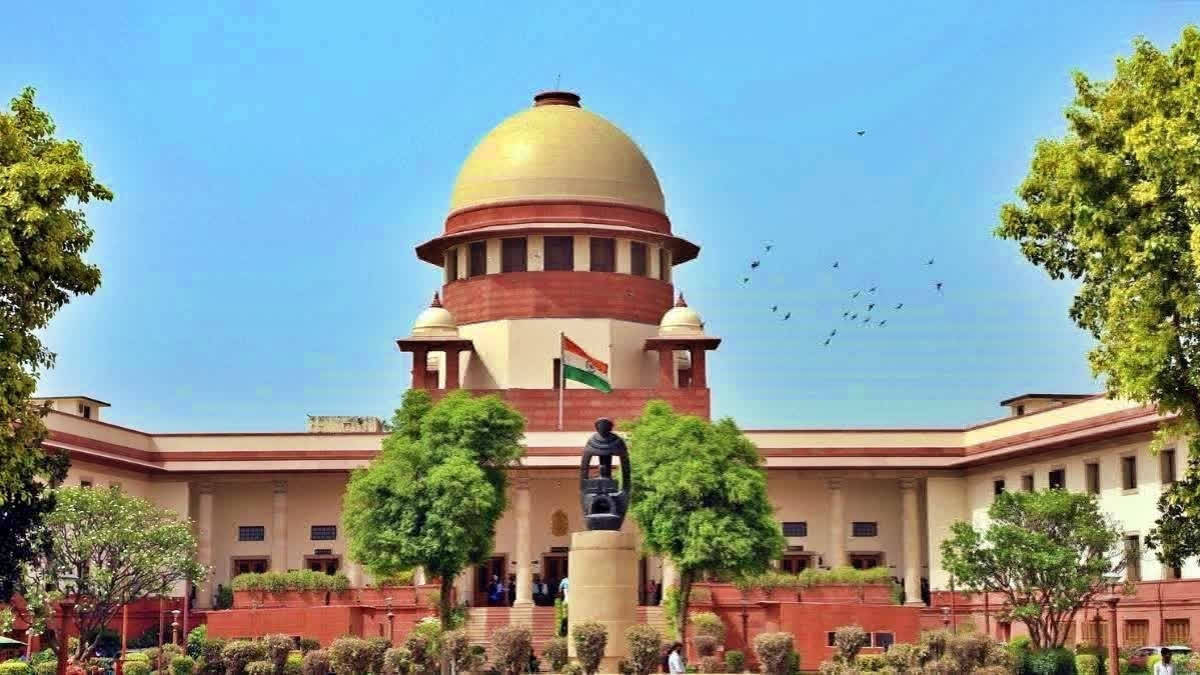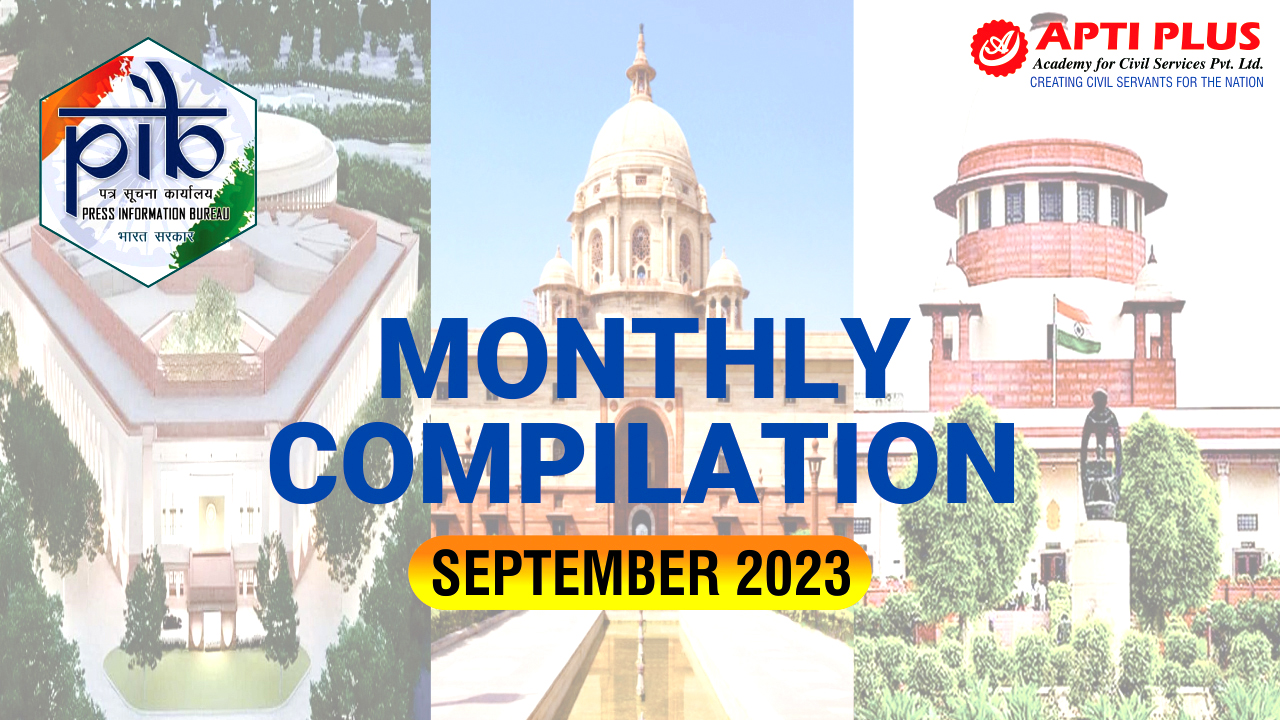Description

Copyright infringement not intended
Picture Courtesy: www.etvbharat.com
Context: The Supreme Court issued guidelines to expedite the disposal of criminal cases against Members of Parliament (MPs) and Members of Legislative Assemblies (MLAs).
Details
- These guidelines were issued in response to a plea filed in 2016, seeking the prompt resolution of cases involving lawmakers and advocating for a lifetime ban on convicted politicians from contesting elections.
- The Representation of the People Act, 1951 (RP Act), introduced by Dr BR Ambedkar, governs the conduct of elections in India.
- Section 8 of the RP Act deals with the disqualification of lawmakers on conviction for certain offences, including promoting enmity between groups, bribery, undue influence, hoarding, profiteering, or adulteration of food or drugs.
- Section 8(3) specifically imposes a six-year ban on individuals convicted of offences with a minimum two-year sentence.
Supreme Court's guidelines include:
- The court recommended the establishment of a "special bench" to monitor criminal cases against legislators.
- High Courts were directed to undertake suo motu registration of cases against lawmakers to ensure their speedy resolution.
- Priority should be given to cases against lawmakers that are punishable by death or life imprisonment. Cases punishable with five years or more imprisonment should also be prioritized.
- The court suggested that cases could be heard by a Chief Justice-led special bench or a designated bench. These cases could also be listed at regular intervals, if necessary. The special bench may call upon the advocate general or prosecutor for assistance.
- The Court acknowledged the difficulty in establishing uniform guidelines for trial courts across the country and entrusted high courts with the responsibility of devising effective measures to monitor and dispose of such cases.
- High Courts were empowered to issue orders and directions for the effective disposal of cases against lawmakers. They could also direct the Principal District and Sessions Judge to allocate "subject cases" to specific courts.

Speedy Disposal of Cases Against Lawmakers
- India is a vibrant democracy where people elect their representatives to the Parliament and the state legislatures. However, many of these representatives are facing criminal charges for various offences, ranging from corruption to murder.
- According to a report by the Association for Democratic Reforms (ADR), as of November 2022, there were 5,175 pending cases against MPs and MLAs across the country, out of which 2,116 (42%) were pending for more than five years.
- The delay in disposing of these cases not only affects the credibility of the lawmakers but also undermines the rule of law and public confidence in the judiciary. Moreover, it allows the accused legislators to enjoy the benefits of office and influence the outcome of their cases. Therefore, there is an urgent need to expedite the trial of these cases and ensure that justice is done without fear or favour.
Steps taken to address the criminalization of politics and speedy disposal of cases against lawmakers
- The Election Commission of India (ECI) has made it mandatory for candidates contesting elections to disclose their criminal antecedents, if any, in their affidavits along with their nomination papers.
- The ECI has also directed political parties to publish the details of criminal cases against their candidates on their websites and in newspapers and TV channels at least three times during the election campaign.
- The ECI has also launched a mobile app called 'cVIGIL' to enable citizens to report any violation of the model code of conduct or any malpractice during elections, including the use of money or muscle power by candidates or parties.
- The Supreme Court has directed that special courts be set up to exclusively try criminal cases against MPs and MLAs and complete the trial within a year.
- The Court has directed that criminal cases against lawmakers be given priority and disposed of expeditiously by the trial courts under the supervision of a special bench of the high court.
- The Court has directed that interim protection or stay orders granted by any court in favour of any lawmaker should not unduly hamper or delay the trial process.
- The Court has directed that electronic evidence be preserved and produced before the trial court without any tampering or alteration.
Challenges that hinder the speedy disposal of cases against lawmakers
- The lack of adequate infrastructure, manpower and resources for the special courts dealing with criminal cases against lawmakers.
- The frequent adjournments, transfers and appeals sought by the accused legislators or their lawyers to delay or derail the trial process.
- The non-cooperation or interference by the executive or legislative authorities in the investigation or prosecution of criminal cases against lawmakers.
- The intimidation or inducement of witnesses or evidence tampering by the accused legislators or their supporters to influence the outcome of the trial.
- The low conviction rate and high acquittal rate in criminal cases against lawmakers due to weak evidence, faulty investigation or poor prosecution.
- The absence of a clear legal framework or mechanism to debar convicted politicians from contesting elections or holding public office for life.
Way Forward to ensure speedy disposal of cases against lawmakers
- The Centre and the states should provide adequate funds, infrastructure, manpower and resources to the special courts dealing with criminal cases against lawmakers.
- The trial courts should strictly adhere to the time limit prescribed by the Supreme Court for completing the trial and avoid granting unnecessary adjournments, transfers or appeals to the accused legislators or their lawyers.
- The executive and legislative authorities should respect the independence and autonomy of the judiciary and refrain from interfering or influencing the investigation or prosecution of criminal cases against lawmakers.
- The witnesses should be given adequate protection and incentives to depose before the trial court without fear or favour. The trial court should also ensure that summons or warrants are issued to secure their attendance as per law.
- The conviction rate and acquittal rate in criminal cases against lawmakers should be improved by ensuring proper evidence collection, investigation and prosecution. The trial court should also ensure that electronic evidence is preserved and produced without any tampering or alteration.
- The Parliament should enact a law or amend the existing law to impose a lifetime ban on convicted politicians from contesting elections or holding public office. Alternatively, the Supreme Court should declare such a ban as a part of the basic structure of the Constitution.

Conclusion
- The issue of speedy disposal of cases against lawmakers is not only a legal issue but also a moral issue. It reflects on the quality and integrity of our democracy and governance. Therefore, it is imperative that all stakeholders, including the judiciary, executive, legislature, political parties, civil society and citizens, work together to ensure that justice is done swiftly and fairly in these cases. This will not only restore public faith in our institutions but also create a conducive environment for clean politics in our country.
Must Read Articles:
Criminalization Of Politics: https://www.iasgyan.in/daily-current-affairs/criminalization-of-politics-20
|
PRACTICE QUESTION
Q. How has the persistent issue of criminalization of politics in India impacted the country's democratic fabric, and what measures can be implemented to address and mitigate this challenge effectively?
|










